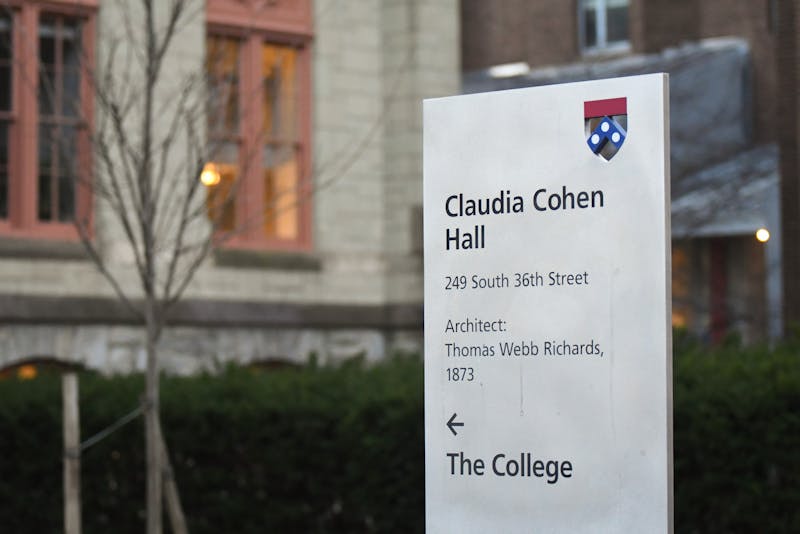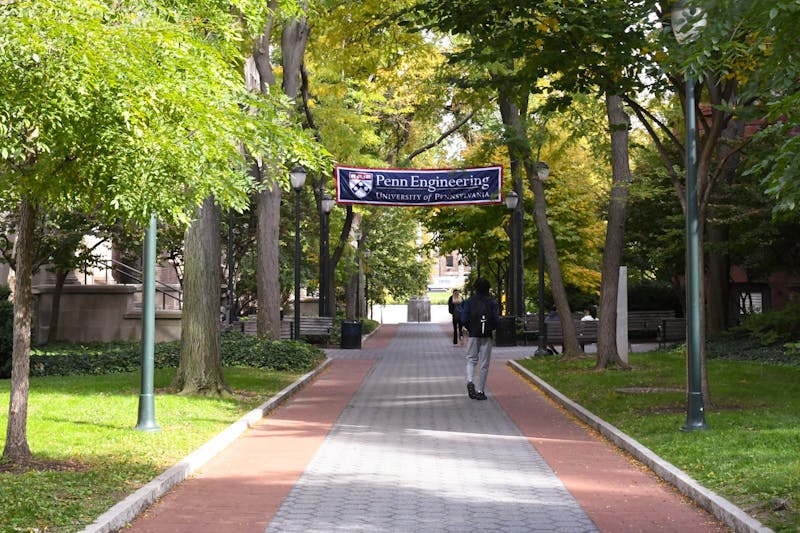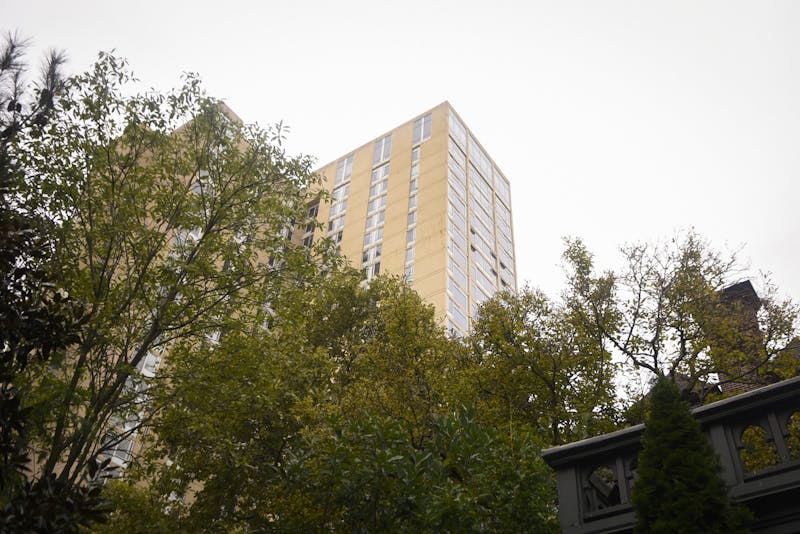
The office of the College of Arts & Sciences are located at Claudia Cohen Hall.
Credit: Roger GeSeveral Penn students expressed frustration with the organization of Penn's add-drop period for classes, though administrators told The Daily Pennsylvanian that changing the process would be difficult.
Multiple students told the DP that they faced challenges due to limited or no opportunities for exposure to course content before the end of the add-drop period, particularly in classes that only meet on Mondays. Penn administrators cited federal and state education policies as complicating the process of changing the add-drop system and academic calendar.
Penn’s academic calendar states that the add-drop period concludes on the third Monday of each semester, giving students about two weeks to explore courses. Due to the midweek start to the fall semester and Monday off for Labor Day, students typically only get to attend their Monday classes once before add-drop ends, making it difficult for students to gauge if they want to stay in a class.
While recognizing the “challenge” of certain class schedules, Director for Education and Academic Administration Jennifer Canose told the DP that the add-drop period is designed to maximize students' time in classes before the registration deadline.
“We do take care to try to schedule the registration deadline so people have the most time possible to make their decisions about their classes while trying to make sure all other deadlines are spaced appropriately,” Canose said.
One College sophomore, who requested anonymity due to fear of academic retaliation, is currently taking a course to fulfill the Physical World sector requirement. Despite the class being scheduled for Mondays and Wednesdays, the student told the DP that it didn’t meet for the first week and a half of the semester, with course content beginning much later.
“By the time I realized it was not for me, the add-drop period had ended,” the student said, adding that he found it “really difficult” to explore courses during the add-drop period because of both the limited timeframe and other nonacademic commitments, including club applications.
"If you can’t meet the first week of the class or if you don’t know how you feel about the class, then you have to just drop it completely and find a different class because you don’t have time to explore and shop around," the student continued.
Associate Vice Provost for Education and Academic Planning Gary Purpura explained that changing the academic calendar is challenging because Pennsylvania law requires classes to meet at least 42 hours over the course of a semester. He explained that changing the add-drop period would require adjusting several other parts of the academic calendar to accommodate other activities, including Penn summer programs for high school students, New Student Orientation, and school breaks.
“We do try to ensure that there is at least one class meeting before the first registration deadline,” Purpura said. “But there have to be enough meetings … overall in the semester to meet the state requirements.”
College sophomore Matthew Barotz also feels that there is a lack of support for switching out of classes during the add-drop period.
"I didn't really know where to go for guidance," he said. "I ended up switching to a class that I didn't end up loving either, just because I was pressured into choosing something quickly."
A College junior, who requested anonymity due to fear of retaliation, told the DP that a Monday English seminar she registered for this fall was more introductory than she expected. The syllabus, which she only saw on the first day of class, overlapped significantly with a class she had taken a previous semester.
"I dropped the class, but 24 hours wasn’t enough time for me to figure out how to fit a different English class in my schedule," the student said.
She explained that the decision to drop the class set her behind on her English minor, adding that she "may have to overload on credits senior year" to complete it.
"Given that the administration moves the days classes meet around to fit other scheduling constraints like Thanksgiving, I wish they’d make the same effort during the add-drop period," the student added. "I really would’ve liked to have found another English class to replace the one I dropped."
Another College junior, who requested anonymity due to fear of retaliation, shared a similar experience, explaining that she selected a fall 2023 Monday seminar because it was described online as a podcasting class. However, when she got the syllabus on the first day of class, she discovered that the audio component of the class was minimal.
Although the student explored other options, she could not easily find an alternative that would fit into her schedule, she told the DP. She added that she did not want to make major schedule changes in the last 24 hours of the add-drop period and that if the class had met earlier in the shopping period, she would likely have switched out of it.
"I thought the point of add-drop was to allow us to explore and find classes that fit our needs well, and it's pretty frustrating that they haven't thought through ways to schedule it in the most effective way," she said.
College senior Eric Lieberman, who was also in a class that only met on Mondays this semester, said that add-drop "wasn't a problem" for him because the class was required for his major. However, he noted that the schedule would have been "really inconvenient and difficult" if he was trying to explore different options.
Other students told the DP that certain curriculum requirements prevent them from fully utilizing the add-drop period.
An Engineering junior studying bioengineering said that for her major, there is “not much surprise when it comes to add-drop” due to the strict course requirements.
“It’s very formulaic. You’re expected to take X classes freshman fall, Y classes freshman spring, and you don’t really deviate,” she explained.
Purpura told the DP that the academic calendar is "never going to meet every need," but emphasized his belief that it "does a really good job of meeting most of them."
“No matter how you do it, there’s going to be something that gets pushed,” Purpura added.
The Daily Pennsylvanian is an independent, student-run newspaper. Please consider making a donation to support the coverage that shapes the University. Your generosity ensures a future of strong journalism at Penn.
Donate








